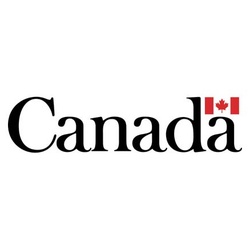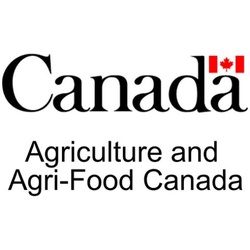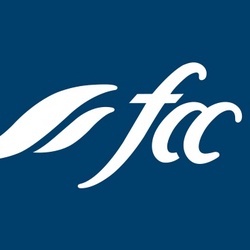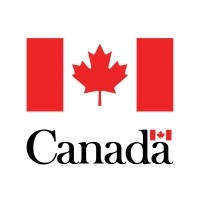
Temporary Foreign Worker Program (TFW)
At a glance
- No Condition
- Open Date : February 18, 2021
- Agriculture, forestry, fishing and hunting
- Educational services
- Health care and social assistance
- Canada
- Financial cooperative
- Non-profit
- Public or Parapublic institution
- For-profit business
- Sole proprietorship
- Social economy enterprise
- Non-financial cooperative
- All revenue ranges
- All organization sizes
- Newcomers to Canada
- Primary and Secondary Education
- Higher Education
- Other Health Services
- Economic, Social and Community Development
- Employment and Training
- Children & youth
- Seniors
- New immigrants & refugees
- Business owners / entrepreneurs
- Academia / students
- All structures
- Provincial
- National
Overview
The program offers guidance for employers seeking to hire temporary foreign workers under the Temporary Foreign Worker Program by determining the appropriate Labour Market Impact Assessment stream and understanding compliance responsibilities. Eligible activities include hiring for high and low-wage positions, primary agriculture, supporting permanent residency, the Global Talent Stream, caregiver roles, foreign academic positions, and positions in Quebec, although no maximum funding amount is specified.
Activities funded
This program facilitates the hiring of temporary foreign workers across various sectors to meet labor demands in Canada. It supports diverse streams aligned with different occupational and regional labor market needs.
- Hiring temporary foreign workers for high and low-wage positions based on regional median wages.
- Employing agricultural workers for primary agriculture operations.
- Recruiting skilled workers to support their permanent residency applications.
- Engaging uniquely skilled talent or in-demand workers through the Global Talent Stream.
- Employing caregivers for children, seniors, or individuals with medical needs.
- Hiring foreign academics at degree-granting post-secondary institutions.
- Recruiting in the province of Quebec using regular or facilitated processes.
- Participating in the Recognized Employer Pilot for simpler hiring processes.
Eligibility
Eligibility for utilizing the Temporary Foreign Worker Program under the Labour Market Impact Assessment (LMIA) is determined by specific criteria related to the employer and the nature of the position.
- The employer must be prepared to apply for and obtain a Labour Market Impact Assessment (LMIA) when required.
- The employer must comply with all recruitment efforts specific to the stream and wage of the position.
- The job offer must meet the median wage requirements as defined by the province or territory.
- The employer must demonstrate efforts to hire Canadians and permanent residents first, especially for high-wage positions.
- Compliance with federal, provincial, or territorial employment and recruitment laws and regulations is mandatory.
- For some streams, such as primary agriculture, the position must be directly related to primary agricultural activities.
- The job must be genuine and not conflict with existing labor laws or agreements.
- Employers hiring under different streams, such as the Global Talent Stream or for caregiver positions, must meet stream-specific requirements.
- Employers in Quebec may be subject to additional or different criteria as per provincial regulations.
Who is eligible?
Employers looking to hire temporary foreign workers under the Labour Market Impact Assessment (LMIA) process as part of the Temporary Foreign Worker Program (TFWP) in Canada are eligible to apply. Specific streams include hiring for high and low-wage positions, primary agriculture positions, applications supporting permanent residency, the Global Talent Stream, caregiver positions, foreign academic positions, hiring in Quebec, and the Recognized Employer Pilot. Each stream has its own eligibility and application requirements based on the employment needs and conditions in Canada.Eligible expenses
Employers in Canada can access grants to hire temporary foreign workers through various Labour Market Impact Assessment (LMIA) streams. These activities enable businesses to meet labor shortages across diverse roles and sectors while ensuring compliance with government regulations.
- Apply for LMIAs for high and low-wage positions based on provincial or territorial median wages.
- Hire temporary foreign workers in primary agriculture for relevant occupations and activities.
- Support skilled foreign workers in their permanent residency applications through LMIA.
- Leverage the Global Talent Stream to hire uniquely skilled or in-demand talent.
- Recruit temporary foreign caregivers for children, seniors, or persons with medical needs.
- Bring foreign academics to Canadian degree-granting post-secondary institutions.
- Streamline the hiring of temporary foreign workers in Quebec via regular or facilitated processes.
- Utilize the Recognized Employer Pilot for a simplified TFW application process.
How to apply
Determine LMIA Requirement
- Evaluate if an LMIA is required based on the position you intend to fill.
- Consult the 'Find out if you need an LMIA' provided by Employment and Social Development Canada.
Select Appropriate LMIA Stream
- Choose the correct LMIA stream according to the job position: High/Low-Wage, Primary Agriculture, Global Talent, Caregiver, etc.
- Consider location-specific procedures if applying for positions in Quebec.
Gather Required Documentation
- Collect necessary documents such as job offer, recruitment efforts proof, and business legitimacy documents.
- Ensure compliance with requirements specific to the selected LMIA stream.
Application Submission
- Log into LMIA Online using a Job Bank account.
- Complete and submit the LMIA application via the online portal.
- Ensure all required fields are filled and necessary documents uploaded.
After Submission
- Monitor processing times and await a decision on your application.
- Prepare for potential additional requests from Employment and Social Development Canada.
Compliance and Follow-up
- Adhere to employer compliance obligations if your LMIA is approved.
- Be aware of the procedures to modify a positive LMIA if necessary.
Additional information
Here are additional relevant details for this grant:
- Employers must adhere to employer compliance obligations under the Temporary Foreign Worker Program (TFWP).
- There are specific modifications that can be made to a positive LMIA if necessary.
- Employers are encouraged to voluntarily disclose any non-compliance issues before an inspection is initiated.
- A list of non-compliant employers is maintained and available after inspections.
- An LMIA Online system is available for submitting applications electronically. A Job Bank account is necessary for access.
- There is an Employer Contact Centre available for inquiries and assistance.
Frequently Asked Questions about the Temporary Foreign Worker Program (TFW) Program
What is the Temporary Foreign Worker Program (TFW)?
How much funding can be received?
What expenses are eligible under Temporary Foreign Worker Program (TFW)?
What is the deadline to apply?
Is the Temporary Foreign Worker Program (TFW) a grant, loan, or tax credit?
Who are the financial supporters of the Temporary Foreign Worker Program (TFW)?
Who is eligible for the Temporary Foreign Worker Program (TFW) program?
Who can I contact for more information about the Temporary Foreign Worker Program (TFW)?
Where is the Temporary Foreign Worker Program (TFW) available?
More programs like this

Industrial Research Assistance Program (IRAP) – AI Assist
National Research Council Canada (NRC)
AgriScience Program – Clusters
Agriculture and Agri-Food Canada (AAFC)
Mitacs Accelerate
Mitacs
ISED — Artificial intelligence (AI)
Innovation, Science and Economic Development Canada (ISED)
AgriCompetitiveness Program
Agriculture and Agri-Food Canada (AAFC)
Farm Equipment Financing
Farm Credit Canada (FCC)
Women Entrepreneur Program
Farm Credit Canada (FCC)
Equality for Sex, Sexual Orientation, Gender Identity and Expression Program
Women and Gender Equality Canada (WAGE)
Crime Prevention Action Fund (CPAF)
Public Safety Canada (PSC)